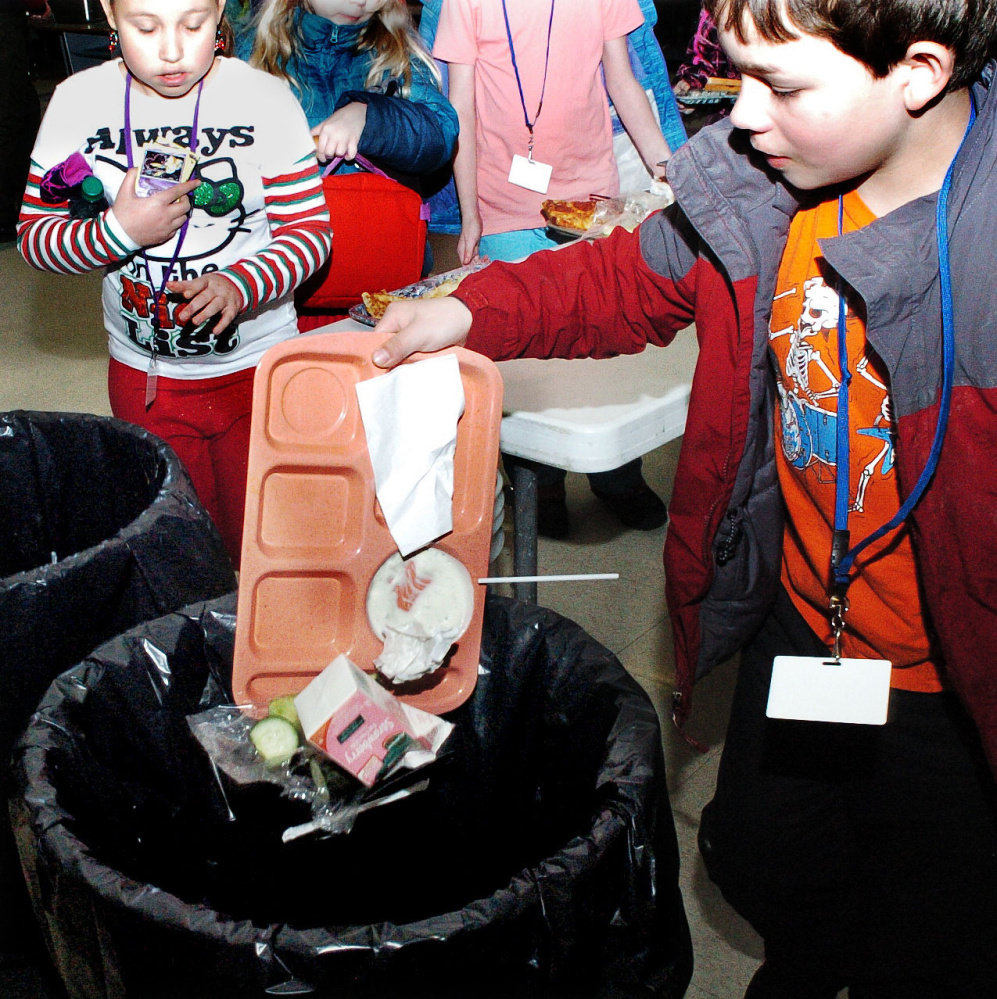WINSLOW — A committee tasked with finding innovative ways to handle the town’s waste is piloting a recycling program that could increase diversion rates and save money.
The program would recycle food waste, bringing it to the Agri-Cycle Energy processing plant in Exeter. The waste would be combined with cow waste and turned into methane gas, which could then be used to make electricity.
“You’re turning something into another value,” said Ken Fletcher, a member of the municipal solid waste committee and a town councilor.
The food waste recycling program is being piloted at Winslow Elementary School and starts on Jan. 3. The school is keeping track of its waste now to get an idea of the tonnage it may send to Exeter.
At the same time, the town is hoping to increase its diversion rate, or how much recyclable material gets diverted out of the trash. Fewer tons of trash means fewer tipping fees the town pays.
The struggle many towns face is collecting those recyclable materials, Fletcher said. According to him, the numbers from surrounding towns show that about 40 percent of trash is recyclable. However, even with single-sort recycling, the best a town will typically get is about 25 percent of the recyclables.
Winslow currently has a drop-off station at the Winslow Public Library for recyclables, and it only gets about 5 percent of the total, 140 tons, Fletcher said. The hope is to capture about 25 percent.
The committee is starting with the school program because that is an obvious producer of large amounts of food waste, and it allows the waste to be collected from one location. The pilot program will continue until the end of the school year, and the committee will then consider expanding it to other local schools.
Collecting homeowner food waste poses more of a challenge, though, he said. There are some trash collection trucks that have three compartments – one for trash, one for recycling and one for food waste – but those would cost more than the typical one-compartment truck, which rings in around $450,000.
The committee may try a drop-off pilot program in 2017 instead for homeowners.
Send questions/comments to the editors.



